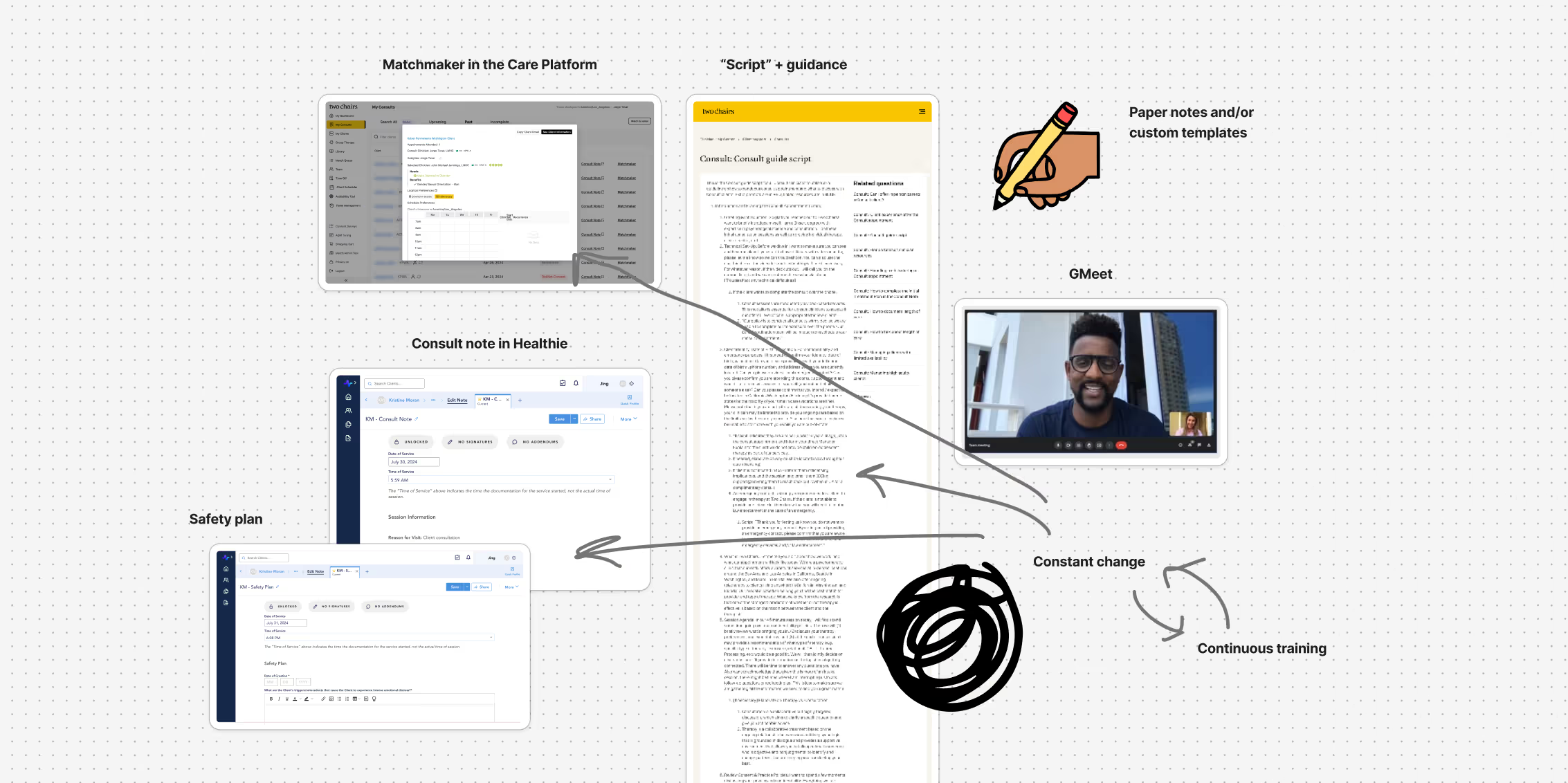Streamlining consults for efficient, high-quality therapy recommendations
Two Chairs is a fast-growing mental health company based in San Francisco, known for its personalized matching process that pairs clients with the right therapist based on their symptoms, availability, and preferences.
While effective, the initial consult appointment—where this information is assessed—is highly manual and inefficient. As the client population tripled, it has become a bottleneck, delaying timely access to care. I was a part of this ambitious project to streamline and scale the consult experience to increase clinical consistency and reduce wait time to care.












